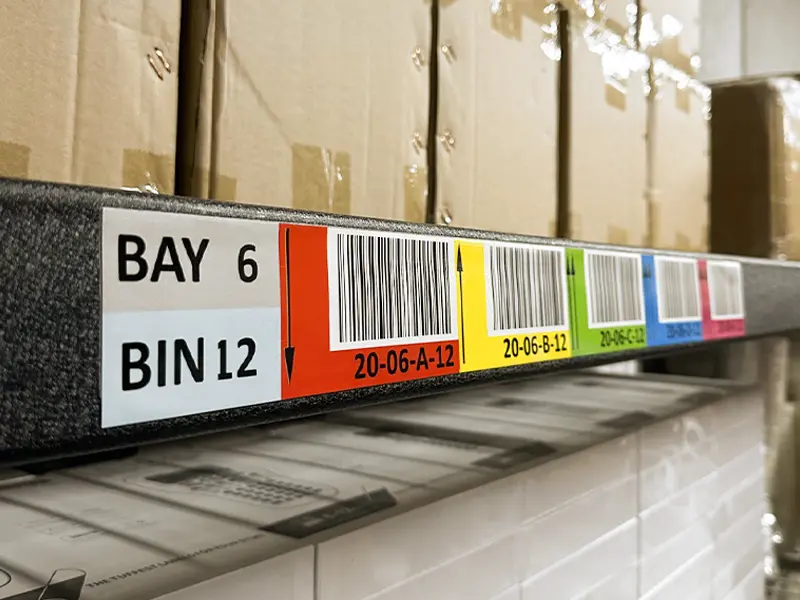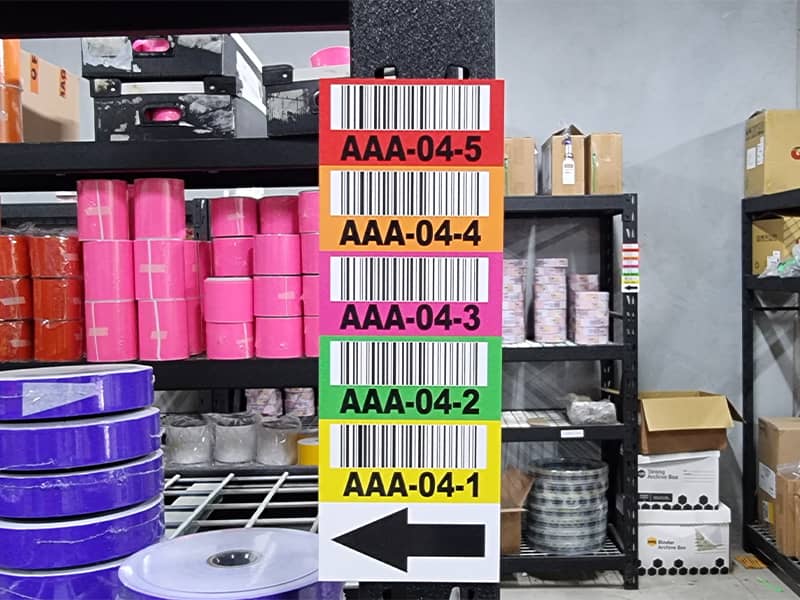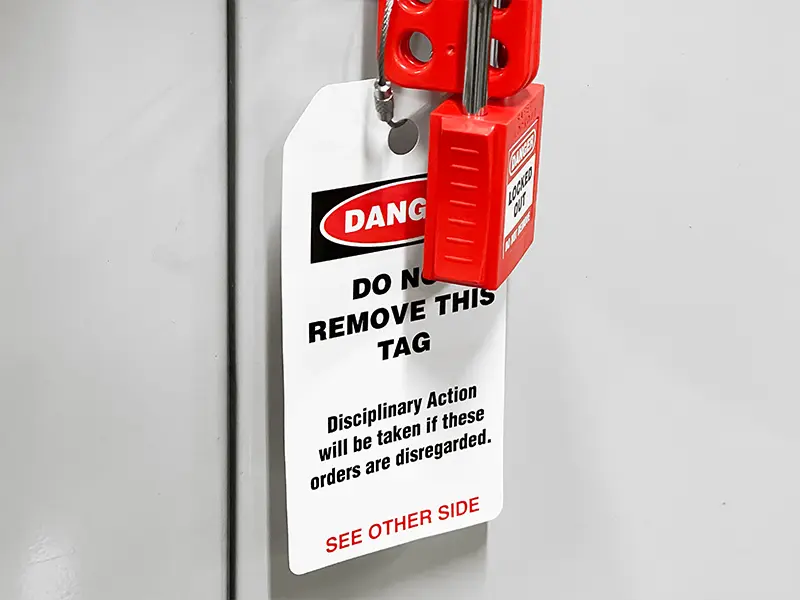How to Label a Warehouse Rack: Quick Guide
In the world of warehousing and logistics, organisation is key. Ensuring that your warehouse is well-structured and easy to navigate can significantly boost productivity and streamline operations. One fundamental aspect of this organization is how you label your warehouse racks. In this comprehensive guide, we will delve into the intricacies of labelling warehouse racks for maximum efficiency and ease of management.

Why labelling matters
Warehouse rack labelling might seem like a simple task, but it can have a profound impact on your day-to-day operations. From ensuring the right products are picked to optimising storage space, the labels on your racks play a crucial role.
Proper warehouse rack labelling offers several benefits, such as:
- 1. Improved Inventory Management
Clear and organised labels help you keep track of your inventory more efficiently. You can easily identify the location and contents of each rack. - 2. Faster Order Fulfillment
When your racks are well-labeled, your team can quickly locate the products they need, leading to faster and more accurate order fulfillment. - 3. Enhanced Safety
Labels can indicate weight limits and other safety information, reducing the risk of accidents in the warehouse. - 4. Space Optimisation
Efficient labelling allows you to make the most of your available space, maximising storage capacity.
Types of Rack Labels
There are various types of labels you can use for your warehouse racks:
- Magnetic Rack Labels
Magnetic labels are easy to move and change, making them perfect for warehouses with frequently changing inventory. - Adhesive Labels
Adhesive labels are cost-effective and come in various sizes, but they might not be suitable for all rack types. - Hanging Tags
Hanging tags are versatile and can be easily relocated, making them ideal for temporary storage areas. - Barcodes and QR Codes
Barcodes and QR codes are excellent for automated inventory management systems, allowing for quick scanning and tracking. - Aisle Markers
- Markers and signs to enhance warehouse navigation within areas and departments of your warehouse.

How to Label Your Warehouse Rack
To label your warehouse racks effectively, consider the following steps:
Plan your labelling strategy
Before you start labelling, plan out the entire process. Consider your warehouse’s layout, the types of racks you have, and how the labelling will best suit your needs.
Choose the right labelling material
Select labels or tags that are durable and can withstand the conditions of your warehouse, including temperature and humidity.
Create a Consistent System
Establish a clear and consistent system for labelling, such as using specific colors or numbers for different rack categories.
Include Essential Information
Ensure that each label includes information like rack location, contents, weight limits, and any other relevant data.
Train Your Team
Educate your staff on the labeling system and its importance, ensuring everyone is on the same page.
Regular Maintenance
Periodically check and update labels as needed, especially when there are changes in inventory or rack usage.
A well-organised and efficient warehouse relies heavily on warehouse rack labelling to manage inventory, fill orders, maintain safety and utilse space effectively. By following the steps outlined in this guide, you can ensure that your warehouse operates at peak efficiency.
FAQs
-
How often should I update my rack labels?
Rack labels should be updated whenever there are changes in inventory or rack usage to maintain accuracy.
-
Can I use the same labelling system for different types of racks?
It’s best to use a consistent system but tailor it to the specific needs of different rack types.
-
Are there any regulations for rack labelling in warehousing?
Regulations may vary by location and industry, so it’s essential to research and comply with relevant standards.
-
How can I plan an effective labelling strategy for my warehouse?
To plan an effective labelling strategy, consider the layout, product types, and future expansion plans of your warehouse. Group similar products together and arrange racking logically to align with daily operations.
-
What materials should I use for warehouse racking labels?
Choose durable materials like weather-resistant materials, heavy duty PVC, or metal for your labels. Ensure they are easy to read and can withstand the warehouse environment.
-
How does efficient labelling impact cost savings?
Efficient labelling reduces the time and labor required for locating items, leading to significant cost savings in the long run.










